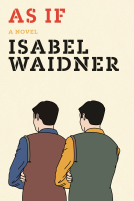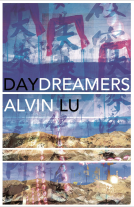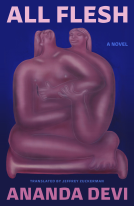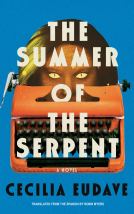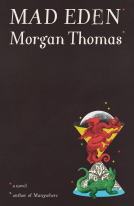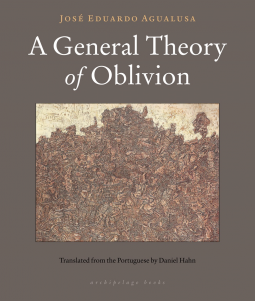
A General Theory of Oblivion
by Jose Eduardo Agualusa
This title was previously available on NetGalley and is now archived.
Send NetGalley books directly to your Kindle or Kindle app
1
To read on a Kindle or Kindle app, please add kindle@netgalley.com as an approved email address to receive files in your Amazon account. Click here for step-by-step instructions.
2
Also find your Kindle email address within your Amazon account, and enter it here.
Pub Date Dec 15 2015 | Archive Date Dec 15 2015
Archipelago Books | Archipelago
Description
Shortlisted for the Man Booker International Prize 2016
"Who is this solitary young woman on the top floor of a luxury building in Luanda, Angola’s capital, and why has she walled off her apartment? Her name is Ludo…Her brooding presence is inescapable” — Kirkus Reviews
On the eve of Angolan independence, an agoraphobic woman named Ludo bricks herself into her Luandan apartment for 30 years, living off vegetables and the pigeons she lures in with diamonds, burning her furniture and books to stay alive and writing her story on the apartment’s walls.
Almost as if we’re eavesdropping, the history of Angola unfolds in A General Theory of Oblivion through the stories of those Ludo sees from her window in a a wild patchwork of a novel, playing on a love of storytelling and fable.
Advance Praise
"In this tale, based on real-life events, one of Angola’s most inventive novelists has found the perfect vehicle to examine his country’s troubled recent past. . . Alongside Mozambique’s Mia Couto (shortlisted for this year’s Man Booker International), Agualusa has already become one of lusophone Africa’s most distinctive voices." — Financial Times
"The translation ... is seamless, with the light detachment and readability of Louis de Bernières at his best, but combined with the sharp insights of JM Coetzee ... Agualusa’s writing is a delight throughout, as he opens up the world of Portuguese-speaking Africa to the English-speaking community. And what a world it is." —The Scotsman
"Hahn is one of our most experienced translators. Such experience shows in tiny interventions to guide the English reader through the chaos of the Angolan battlefield ... and in his taking confident ownership of certain descriptive passages, ensuring the music of the original is conveyed along with the meaning... a timely homage to the prize of Angolan independence." —The Independent
"Without doubt one of the most important Portuguese-language writers of his generation." - António Lobo Antunes
"Cross J.M. Coetzee with Gabriel García Márquez and you've got José Eduardo Agualusa, Portugal's next candidate for the Nobel Prize." - Alan Kaufman, author of Matches
PRAISE FOR THE BOOK OF CHAMELONS
"Humorous and quizzical, with a light touch on weighty themes, the narrative darts about with lizard-like colour and velocity. Agulausa's delightful novel skitters across minefields with grace and poise." - Boyd Tonkin, The Independent.
"Ingenious, consistently taut and witty." - The Times Literary Supplement
"Strange...elliptical...charming." - Guardian
"A book as brisk as a thriller and as hot and alarming as the most powerful kind of dream." - Michael Pye, author of The Pieces from Berlin
"A work of fierce originality." - The Independent
"A subtle beguiling story of shifting identities." - Kirkus
PRAISE FOR CREOLE
"One of the most powerful and most beautiful arguments against a stereotyped vision of Africa." - El País
"Winged me into the lore of 19th-century Portuguese colonies and the slave trade."-Lisa Appignanesi, Independent Books of the Year
"Captivates with Picaresque adventure and evocative impressions." --Maya Jaggi, Guardian
Available Editions
| EDITION | Other Format |
| ISBN | 9780914671312 |
| PRICE | $18.00 (USD) |
Average rating from 8 members
Featured Reviews
 Educator 211653
Educator 211653
Thank you Net Galley. A gorgeous, story of a modern day urban Crusoe set in Angola, against the backdrop of its independence struggle and the civil war that followed. The blurb said it was based on a true story and our newspapers often carry stories of extreme recluses. How, why, what are all questions that are answered and then not. The translation is excellent and the story was reminiscent of Latin American authors and their use of magic realism. Beautiful.
 Meghan Rose A, Reviewer
Meghan Rose A, Reviewer
I always find it harder to write reviews for good books than for poor ones (perhaps I should really say books I enjoyed versus books I disliked since no one has, of yet, made me the supreme arbiter of what constitutes a good book. Perhaps that email mistakenly got routed to my spam folder? Feel free to send it to me again universe.) A bad book I can pick apart and be sarcastic about. A good book, what is there to say except I have read a good book?
So I have read a good book.
In A General Theory of Oblivion by Jose Eduardo Agualusa, Ludovica Fernandes Mano, a Portuguese transplant to Angola builds a wall separating her apartment from the rest of the building during the Angolan war for independence. She stays there for thirty or forty years later until everything in the story comes together, a bit like in the most absurd of French movie farces, but more like in the tiny patterns of a pysanka, all small and perfect and fit together just so.
Okay, I went away and looked at buzzfeed for fifteen minutes. I'm back. This is what I mean, what am I supposed to say about a good book other than it's a good book? I read it in an evening. It isn't heavy or long. It's like bubbles of air. It's like reading Gabriel García Márquez -- I wrote that in the margins, then saw that other reviews said that too -- but other reviews also talk about magical realism and I guess I don't know what that means because unlike in Gabriel García Márquez, there are no shrinking women or marveling at ice or ascending into the heavens. There are coincidences. There is that farce in the denouement. Like with Gabriel García Márquez, one needs to suspend disbelief, but A General Theory of Oblivion is so deftly drawn that suspending one's disbelief is a pleasure rather than a chore, like with Gabriel García Márquez. Is that what magical realism is: an enjoyable suspension of disbelief?
I liked A General Theory of Oblivion. I didn't love it, but I didn't put the book down once from the first page to the last, so what I will say is what I have said: I have read a good book.
A General Theory of Oblivion by Jose Eduardo Agualusa went on sale December 15, 2015.
I received a copy free from Netgalley in exchange for an honest review.
 Andrija F, Educator
Andrija F, Educator
*A General Theory of Oblivion* by José Eduardo Agualusa is a novel that explores themes of memory, identity, and the impact of historical upheaval on individual lives. Set in Angola, the story follows Ludovica, a Portuguese woman who locks herself away in her apartment for decades to escape the turmoil of the Angolan War of Independence. As the world outside changes dramatically, Ludovica’s isolation becomes a metaphor for both personal and collective amnesia. The novel intertwines her narrative with the stories of those around her, examining how historical events and personal choices shape the understanding of self and the nature of memory. Agualusa’s writing blends magical realism with historical fiction, creating a rich and imaginative exploration of the ways in which people and societies confront and cope with the past.
Readers who liked this book also liked:
Cecilia Eudave
General Fiction (Adult), Literary Fiction, Multicultural Interest

